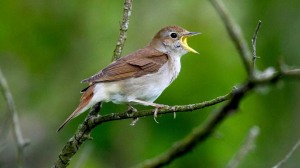This piece is the second of a series that I’m offering as conversation starters in the context of the crisis we are all going through. Coronovirus has turned the world upside down. Old ways have been mothballed. New things are emerging. Many already talk about a new normal beyond the crisis in which something of the good we have experienced is allowed to take hold. My (admittedly early) take on this is that the impact of the virus has been to clear a space for glimpses of a better humanity. And it is one that is full of the values of expressions of the Kingdom of God. This is no coincidence. Our inner yearnings, and our very created make-up lean in that direction. So these reflections seek to explore those connections and make something of a case for them.
 Only when the last tree has been cut down, the last fish been caught, and the last stream poisoned, will we realize we cannot eat money (Cree Indian Saying)
Only when the last tree has been cut down, the last fish been caught, and the last stream poisoned, will we realize we cannot eat money (Cree Indian Saying)
Come to me, all you who are weary and burdened, and I will give you rest. Take my yoke upon you and learn from me, for I am gentle and humble in heart, and you will find rest for your souls. For my yoke is easy and my burden is light (Jesus, Gospel of Matthew 11: 28 -30)
The coronovirus pandemic has been called by some ‘the great pause’. It really does feel like the world has ground to a halt. In the first weeks as many people moved their work online a strange fatigue set in. Was this the tiring nature of online video meetings? Or was it our bodies responding with relief to a chance to live at a more humane pace. Trains are empty. The sky is free of vapour trails. Those living under flight paths talk of the bliss of the silence they are experiencing, many for the first time. The air feels cleaner and nature closer. Animals have taken advantage of the quiet streets and begun wandering around our towns. Are there more birds? Or is it just that we are noticing them more? Certainly, people have noticed a rising attentiveness in themselves. We are noticing that doing nothing, is not doing nothing. It is instead relaxing into a kind of happy purposelessness. Such ‘wasted’ time has had no value. And yet we are learning to feel its value.
There is an old story from early colonial times when western explorers were starting to travel into Africa’s interior. The indigenous African tribesmen who had been recruited to carry the luggage of the explorers refused to journey at the pace required of them. They would keep stopping for rests that seemed far longer to the explorers than necessary. When they were eventually confronted on their ‘laziness’ they responded: ‘We cannot continue – we are waiting for our souls to catch up’
Modern western life as it has proliferated across the globe has promised prosperity but severed us from our souls. We hardly know who we are anymore. Many of us cannot quite remember why we get up and race around to do the things we do. And even if what we do has recognised value, there is never a moment to stop and reflect, breathe, reshape and begin again. Our souls have been left behind. And when we break (as soul-starved people do), we are not given time to heal, we are just replaced.
When Jesus talked of his way of life he talked of it being like ‘a light yoke’. What does that mean? The yoke was the thing you put on an ox to connect it to a plough. It had a heft, a weight. This metaphor was commonly used in Jesus’ time to refer to the burden of a Rabbi’s teaching. Rabbi’s didn’t just teach knowledge , they didn’t just give advice, they invited people to follow their way of life. This was their ‘yoke’. And Jesus is saying his ‘yoke is easy’. Those same verses were translated into modern idiom by an American pastor called Eugene Peterson like this ‘walk with me and work with me—watch how I do it. Learn the unforced rhythms of grace’
Is it a coincidence that in losing its faith in God the western world has severed us from our souls? Is it any coincidence that in discarding spirituality we have dehumanised ourselves and brought the planet close to environmental collapse? How do we go back? Maybe we can’t. But we can go forward in a new way. Wait. Wait for your soul to catch up. Then listen to it. Ask what it needs and don’t ignore it.


